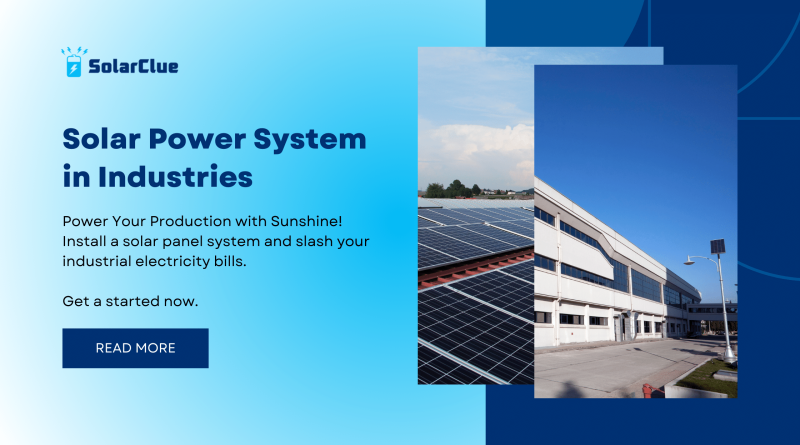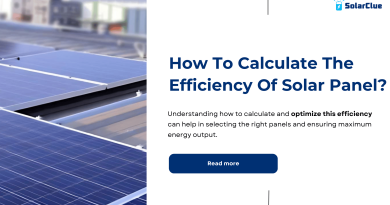Solar Power System for Industries
Table of Contents
Solar Power System for Industries
Welcome to our blog. We will be discussing the benefits and advantages of implementing solar power system for industries. Today sustainability and energy efficiency are becoming increasingly important. Solar power offers a reliable and cost-effective solution for businesses looking to reduce their carbon footprint. In this article, we will explore the various reasons why industrial businesses should consider investing in a solar power system. Additionally, we will also discuss about the key components and considerations for implementing such a system.
Why Go Solar?
There are several reasons why industrial businesses should consider switching to solar power. One of the primary benefits is the cost savings. This can be achieved through reduced electricity bills. By generating your own electricity from the sun, you can significantly lower your dependence on the grid. This can help you avoid the volatile prices of traditional fossil fuels. Additionally, many governments offer incentives and rebates for businesses that invest in solar power. This makes it an even more attractive option for industrial applications.
Another important reason to go solar is the positive impact it can have on the environment. By using clean, renewable energy sources like solar power, industrial businesses can drastically reduce their carbon emissions. And this will help them to combat climate change. This can also help improve your company’s reputation and appeal to environmentally-conscious consumers.
Key Components of a Solar Power System
There are several key components that make up a solar power system for industrial applications. The most important of these is the solar panels, which are responsible for capturing sunlight and converting it into electricity. These panels can be installed on the roof of a building or on the ground, depending on the available space and sunlight exposure.
In addition to solar panels, a solar power system also includes inverters, which are responsible for converting the direct current (DC) electricity generated by the panels into alternating current (AC) electricity that can be used to power your industrial equipment. Batteries are another important component of a solar power system, as they can store excess electricity generated during the day for use at night or during periods of low sunlight.
Considerations for Implementing a Solar Power System
When planning to implement a solar power system for your industrial business, there are several important considerations to keep in mind. One of the most critical factors is the location and orientation of your solar panels. To maximize their efficiency, it is essential to place them in a location that receives ample sunlight throughout the day, without any shading from nearby buildings or trees.
You should also consider the size of your solar power system, taking into account your energy needs and available space for installation. A professional solar energy provider can help you determine the optimal size and configuration of your system to ensure that it meets your requirements and provides the greatest return on investment.
Conclusion
In conclusion, implementing a solar power system for industrial applications offers numerous benefits, including cost savings, environmental sustainability, and increased energy independence. By harnessing the power of the sun, industrial businesses can reduce their carbon footprint, lower their energy bills, and enhance their reputation as a sustainable and socially responsible enterprise. With the right planning and installation, a solar power system can provide a reliable and efficient source of electricity for years to come, helping your business thrive in an increasingly competitive and environmentally conscious market.



